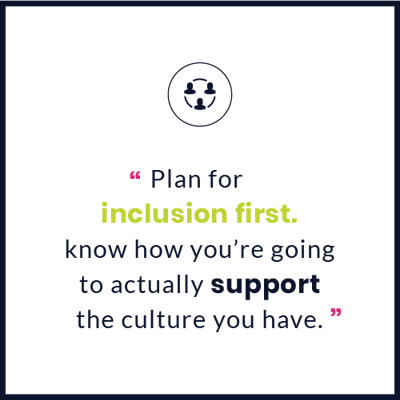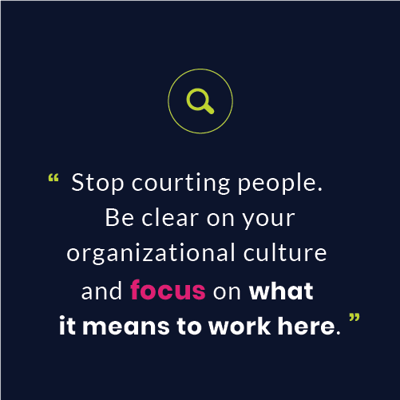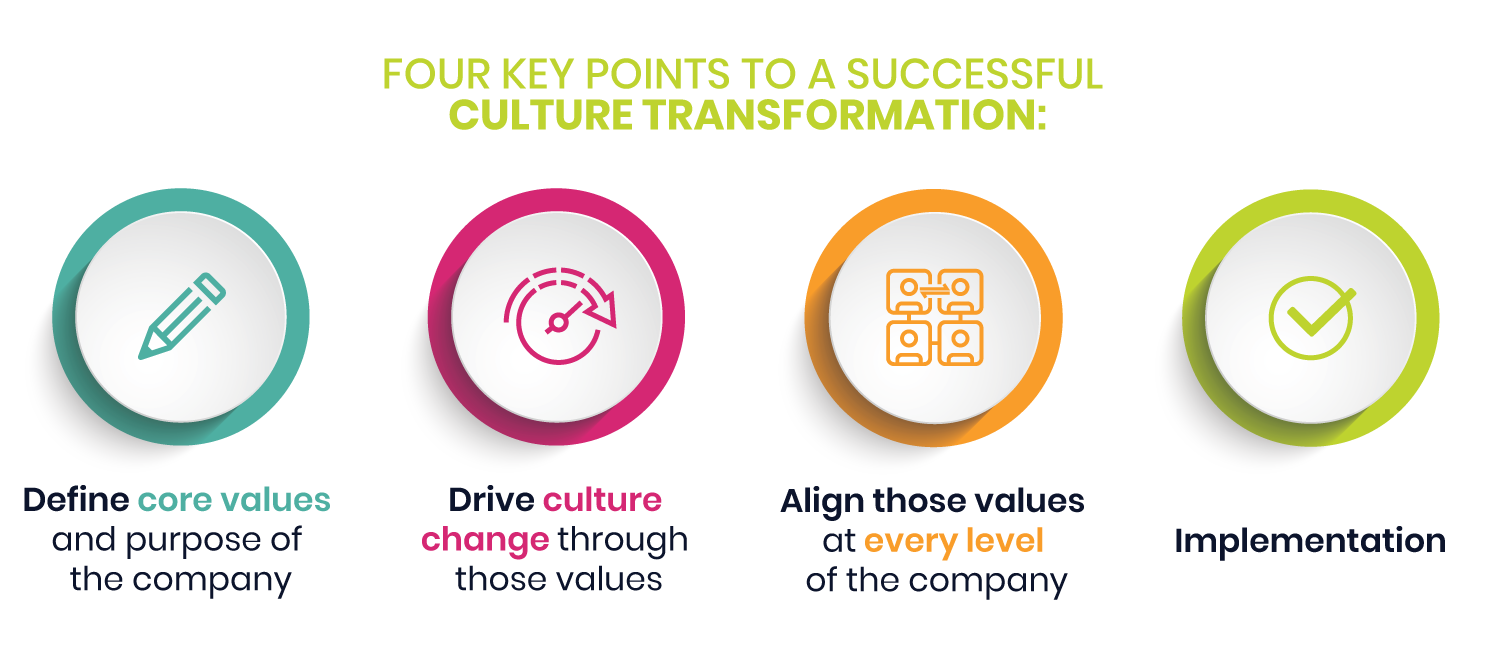
I recently had the pleasure of attending the 2019 SHRM NYC Conference #ExceedingtheVision where the focus was on disrupting the HR world in a positive way that embraces company culture.
Company culture has long been a subjective concept that was often defined by whether or not your company allowed for casual Fridays. With work-life balance and flexibility being key in the modern-day workforce, culture is becoming less of a unicorn and more of a must-have for companies to attract and retain top talent. And with sites like Glassdoor paving the way for employees to speak about you as an employer, a positive culture is good PR and good business.
 The morning keynote speaker was Johnny C. Taylor, Jr., SHRM-SCP – the President & CEO of SHRM. In his speech, The Future State! Disrupting HR Like Nothing We’ve Ever Seen he focused on how the “old Human Resources” is no longer working. No matter your industry, everything comes back to HR and to be responsive to those we serve, we must accept the move into the augmented era of Artificial Intelligence (AI) and machine learning. What used to take 100 years now takes 1-2. You want your company to be creative, agile and adaptable, therefore you’re seeking employees who exemplify those same qualities.
The morning keynote speaker was Johnny C. Taylor, Jr., SHRM-SCP – the President & CEO of SHRM. In his speech, The Future State! Disrupting HR Like Nothing We’ve Ever Seen he focused on how the “old Human Resources” is no longer working. No matter your industry, everything comes back to HR and to be responsive to those we serve, we must accept the move into the augmented era of Artificial Intelligence (AI) and machine learning. What used to take 100 years now takes 1-2. You want your company to be creative, agile and adaptable, therefore you’re seeking employees who exemplify those same qualities.
For those in Human Resources, and those like myself, who consult and communicate on behalf of HR, these topics really resonated. Organizations used to exist within a hierarchy – there was a clear division of labor and line of reporting. Now, jobs overlap, and everyone reports to everyone.
History has not always embraced technical change. When ATMs were first introduced, bank employees nationwide panicked that their jobs were becoming obsolete. Instead, what resulted was the creation of more jobs, not less, although not always the same job.
 The future of HR will experience an almost maniacal focus on culture. America is more diverse than it has ever been – but also more divided. Plan for inclusion first – know how you’re going to actually support the culture you have. Stop courting people. Be clear on your organizational culture and focus on what it means to work here.
The future of HR will experience an almost maniacal focus on culture. America is more diverse than it has ever been – but also more divided. Plan for inclusion first – know how you’re going to actually support the culture you have. Stop courting people. Be clear on your organizational culture and focus on what it means to work here.
Companies need to transform to keep up with the shift into the Augmented Era. Transformation starts with culture and people. We are no longer in the informational age where advanced degrees and mountains of knowledge are the key to a company’s success. Employees who can bear the truth, remain objective, be both a player and a coach as well as fearlessly collaborate with the CEO and the intern alike, are the most valuable assets in a company. Being able to anticipate but not react are key. No matter the title, all employees should see themselves as business people. They must market their position in the company. Therefore, all employees, including HR, need to be engaged in the “business” of the business.
Strategic thinking is still important, but it is just the blueprint – culture is the actual building. Randy Zeno and Jeremiah Schnee expanded on this during their session Transforming your Business by Transforming Your Culture. They mentioned four key points to a successful culture transformation:
- Define core values and purpose of the company
- Drive culture change through those values
- Align those values at every level of the company
- Implementation
They said to invite colleagues to participate in defining the culture of your organization regardless of their level. When employees help create the vision, they’ll feel a sense of ownership and pride and become more engaged.
According to Watson Wyatt’s Work/USA Report that surveyed over 13,000 full-time employees, employment engagement is fundamental to culture transformation. When employees are engaged, companies:
- enjoyed 26% higher employee productivity
- earned 13% greater total returns to shareholders over the last 5 years.
Additionally, employees are:
- twice as likely as their less-engaged peers to be top performers
- miss 20% fewer days of work
- 75% exceed or far exceed expectations in their most recent performance evaluation
- Are more supportive of organizational change initiatives and are resilient in the face of change
So, what does all this mean? It means that to be a competitive player in the workforce, companies must embrace the shift to the Augmented Age where curiosity, wisdom and engagement are the driving forces behind profitability and success. Leave behind the elitist mentality that leaders are exempt from collaboration. Accept the fact that we are all human. We all make mistakes and it’s okay to admit that. Embrace a positive energy. Don’t delay a transformation of your culture for more pressing issues. Culture is the most pressing issue of all. Your employees will thank you for it.




